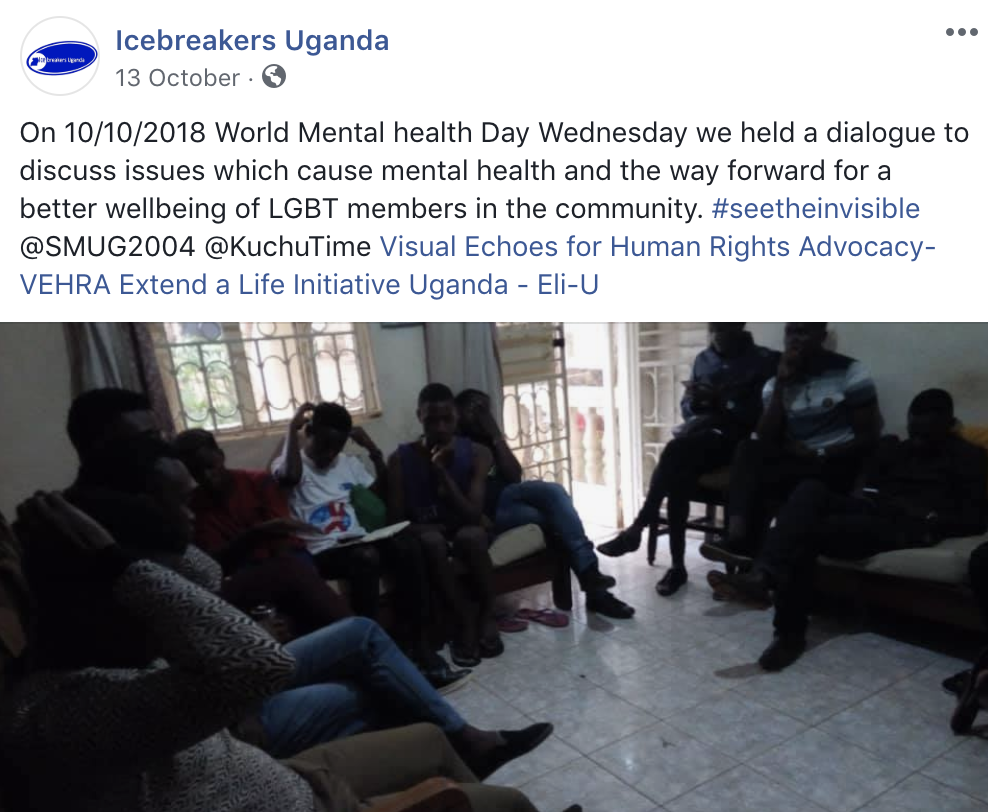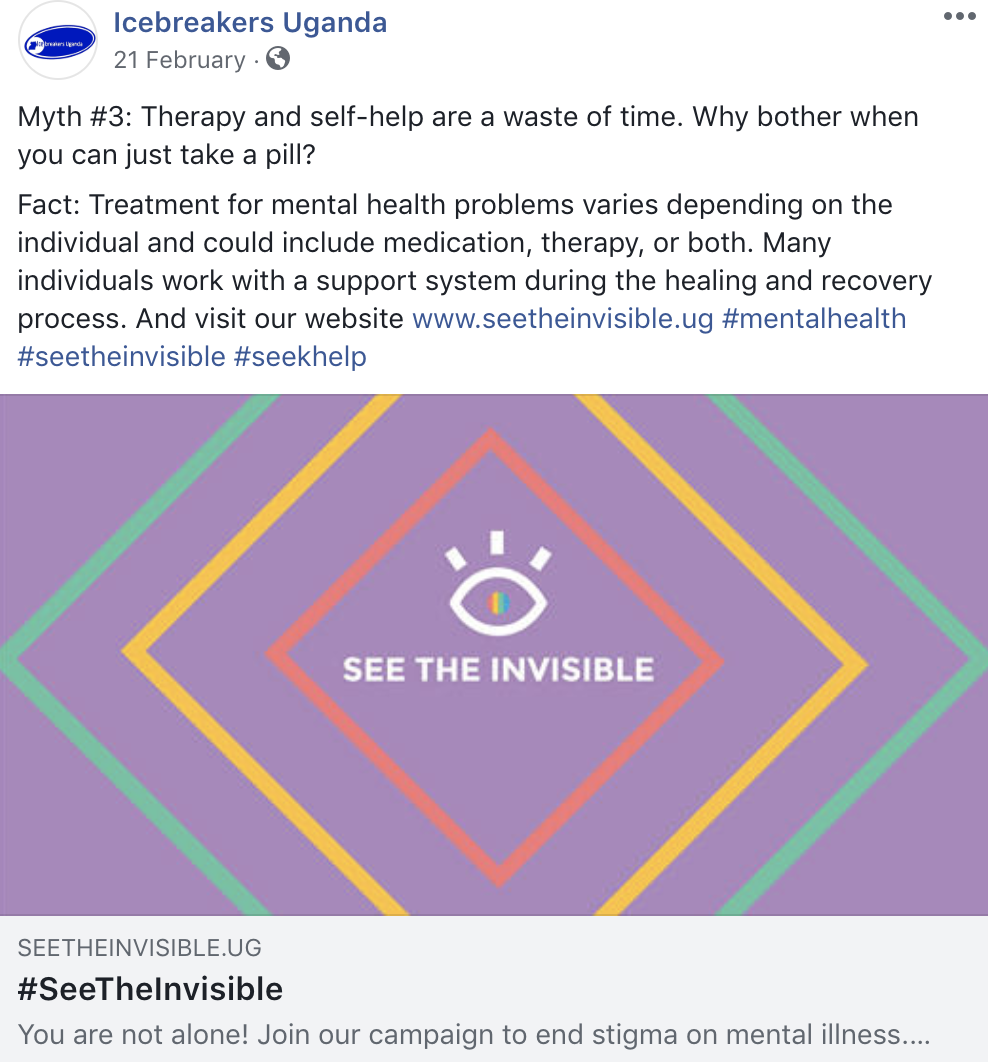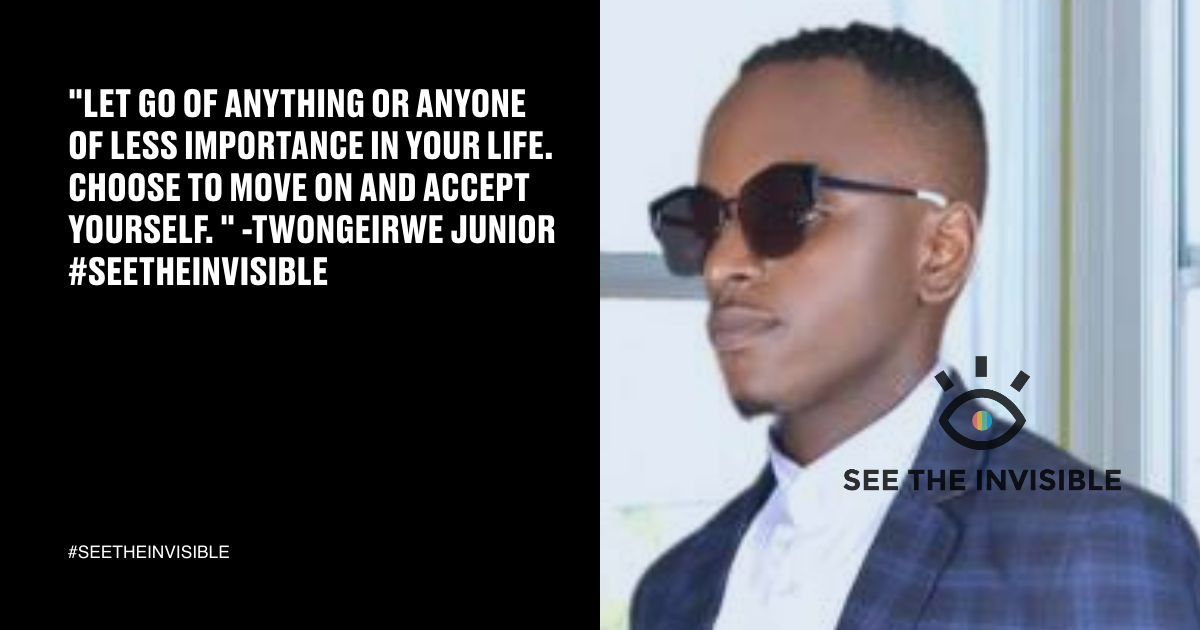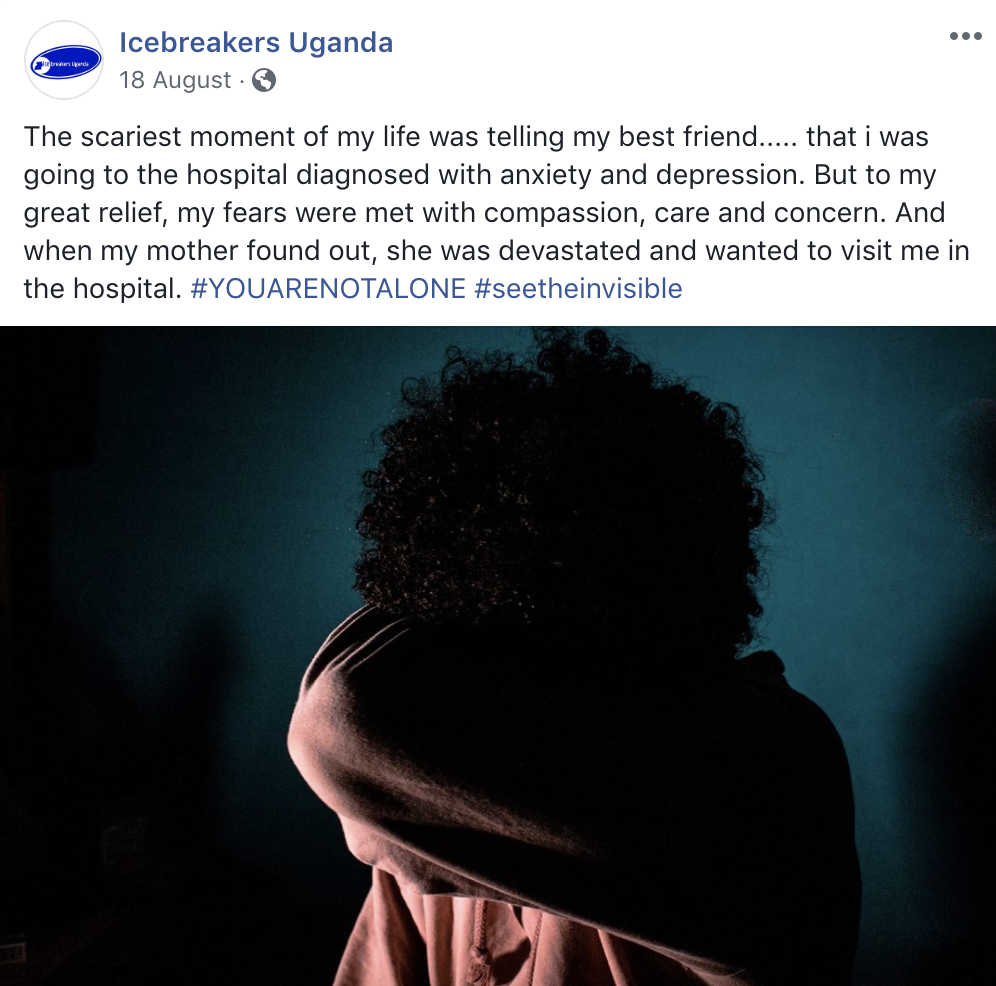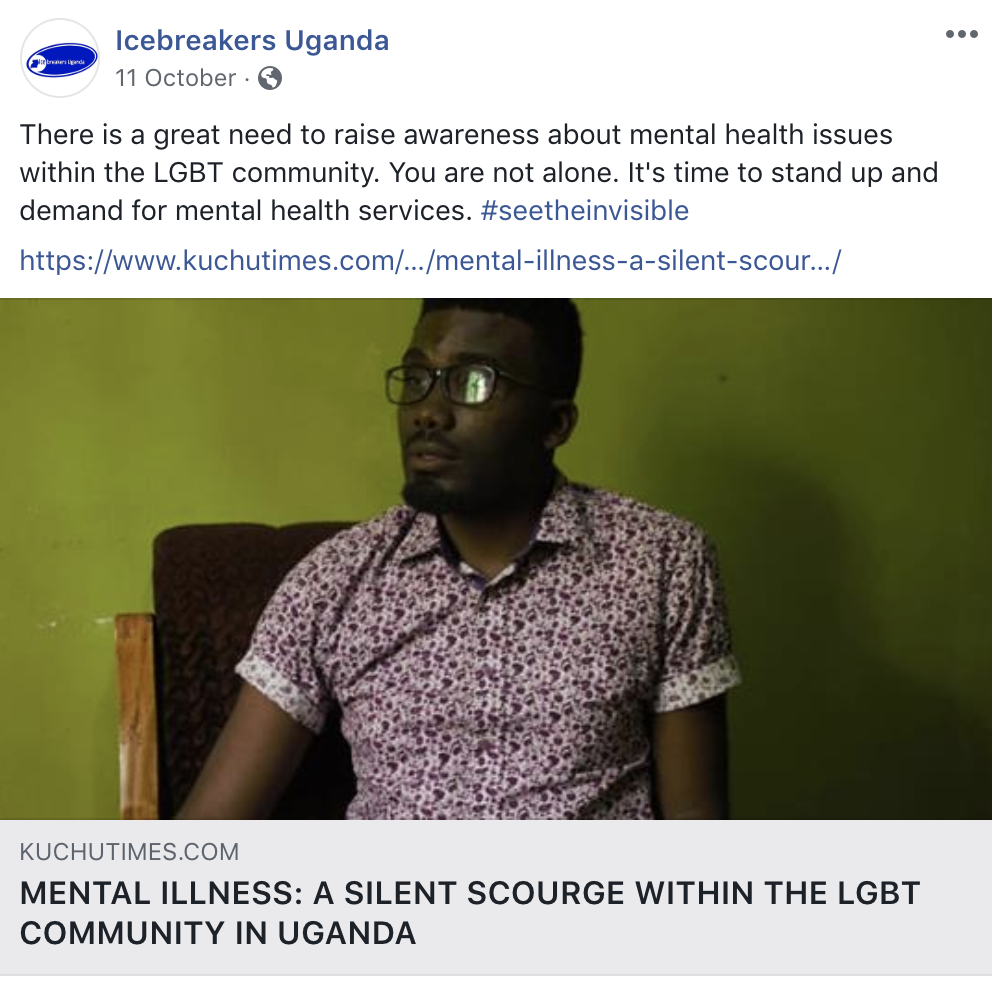See The Invisible
About the CSOs
Sexual Minorities Uganda (SMUG) was formed in 2004 to address the need to protect and support Lesbian, Gay, Bisexual, Transgender, Intersex (LGBTI) individuals in Uganda. SMUG advocates for policy reform, while simultaneously monitoring and aiding to coordinate the efforts of 18 LGBTI organisations in Uganda.
Icebreakers’ mission is to support and raise the awareness of all gay people in Uganda about their human rights aspects in health, risky sexual behaviours with emphasis on HIV/AIDS and to speak out for those who are being bullied, abused or hated because of their sexual orientation.
The team
From left to right: Björn (journalist, Sweden), Fridah (designer, Kenya), Elvis (CSO representative, Uganda), Grace (CSO representative, Uganda), Kollin (developer, Uganda), Sarah (Team Leader, data/developer, Lebanon)
About the topic
There is a big stigma around mental health issues in Uganda, there isn’t even a word for depression in the Bantu languages. Mental health issues is even more of an issue for the LGBT population in the country, who cannot reach out for help as easily because being LGBT is still not socially acceptable in Uganda. SMUG and Icebreakers wanted LGBT people be educated in mental health issues and help them feel less alone.
Having two CSOs collaborate on a campaign was a first at DATA4CHANGE, but the SMUG and Icebreaker team was able to collaborate on what has proven to be one of the most successful campaigns in both organisations’ recent history.
Both organisations have experience of working on mental health issues in the LGBT population in Uganda. SMUG run a project on Intimate Partner Violence (IPV) and the mental health repercussions from that and Icebreakers run clinics where clients come with physical and mental health issues.
A look at the data
This project is a perfect example of how you can create something really useful and powerful using open data and adding CSO qualitative information to create something that resonates with the target audience.
The team went on a joint data hunt and they found a number of datasets that they could use to generate a debate about mental health in the LGBT community, they included datasets from WHO, AFRO, Makerere University/Karolinska institute, National Alliance on Mental Illness, Annual Review of Clinical Psychology, UN Database on violence against women and more.
Coupled with first person testimonies from Ugandan LGBT people suffering from mental health issues the team were able to create a data-driven campaign.
ResultThe team created a multi-platform campaign consisting of a mobile-first design website with easy to understand infographics and case studies, social media assets based on the data and case studies, interactive quiz that can be shared on social media and WhatsApp, as well as a Facebook ChatBot and a Toll Free Help Line that people can call.
“#SeeTheInvisible was the most successful online campaign we did in 2017. Community leaders are quoting the campaign while speaking about mental health issues, and international journalists are writing about it.”
Grace Waitherero
Head of Communication, SMUG
Impact
The creative team also helped the CSOs to design and print posters, T-shirts, pamphlets (available in English and Lugandan) and more. Although it was launched in December 2017, the See The Invisible campaign is still going strong today and there is now a private Facebook support group that also does regular meet-ups in real life around Uganda where people can discuss mental health issues in a safe and supportive environment.














